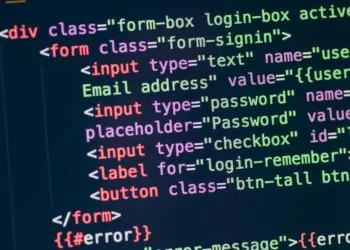Ever walked into a perfectly tidy room and felt an instant lift in your mood? If so, you’re not alone. Cleanliness isn’t just about aesthetics: it’s a profound psychological phenomenon that’ll make you rethink those dust bunnies under your couch. So, grab a cup of coffee and let’s investigate into why a spotless environment can do wonders for our mental well-being, while we tackle those pesky reminders of previous cleaning attempts.
The Psychology Of Cleanliness Mrshomegen

Cleanliness goes beyond mere hygiene. It’s entwined with our psyche in ways that many might overlook. From a psychological standpoint, humans associate cleanliness with control and order. When the surroundings are tidy, individuals often feel a sense of mastery over their space, which can significantly impact their overall mood and mental health. In fact, studies have shown that environments perceived as clean can lead to lower stress levels, promoting clarity and enhancing productivity.
Yet, it’s important to understand that perceptions of cleanliness vary widely. An individual’s background, upbringing, and personal experiences contribute to their standards of cleanliness, culminating into a unique psychological framework. Some may find order in minimalism, while others thrive in a more eclectic, lived-in space. Regardless, the common thread remains: a clean environment typically promotes a positive mindset.
The Connection Between Cleanliness and Mental Health
The relationship between cleanliness and mental health is astoundingly significant. Those who maintain cleaner spaces report feeling less anxious and more in control of their lives. In fact, clutter has been scientifically shown to be a source of stress. When surrounded by chaos, the brain struggles to focus, making tasks feel overwhelming. Conversely, decluttering can foster a sense of liberation, allowing one to tackle other challenges with renewed vigor.
Also, individuals coping with mental health issues often find solace in cleaning routines. Activities such as organizing or scrubbing can act as therapeutic outlets, providing both a distraction and a sense of accomplishment. Indeed, tidying up have become a mantra for many as they confront their emotional struggles.
Cultural Influences on Cleanliness
Cleanliness isn’t solely a personal affair: it’s heavily influenced by culture. Different cultures have unique standards for cleanliness and order. For instance, in many Eastern cultures, cleanliness is viewed as a form of respect towards oneself and others, whereas in some Western cultures, cleanliness is often linked to personal responsibility.
These cultural norms dictate not only behaviors surrounding cleanliness but also what is deemed acceptable or unacceptable. Some cultures prioritize cleanliness as a communal effort, fostering both cooperation and belonging, while others view it as an individual try. This divergence shapes how individuals perceive their environments and eventually their psychological health.
The Role of Cleanliness in Personal Identity
Cleanliness can also play a crucial role in shaping personal identity. For many, a clean and organized space often reflects their values, priorities, and even their aspirations. The way one organizes their home can tell a story, whether it’s a rejection of excess through minimalism or an embrace of their creativity through a more vibrant, cluttered space.
Also, the act of cleaning can serve as a form of self-care, reinforcing an individual’s identity as someone who values organization and discipline. In this light, cleanliness becomes a tool for self-expression, allowing individuals to curate their environments to mirror who they aspire to be.
Practical Tips for Cultivating a Clean Environment
Ready to take steps toward a tidier space? Start with small, manageable tasks. Here are some effective strategies that foster cleanliness:
- Daily Cleaning Rituals: Incorporate small cleaning tasks into your daily routine to maintain order.
- Declutter Regularly: Schedule regular intervals for decluttering. A good rule is to assess items you’ve not used in the past six months.
- Organizational Tools: Invest in storage solutions that make organizing easier. Bins, shelves, and labels can work wonders.
- Mindful Cleaning: Instead of viewing cleaning as a chore, adopt a more mindful approach: embrace the therapeutic aspects of the process.
- Involve Others: Share the cleaning responsibilities at home. Collaborative efforts not only lighten the load but also foster connections.
The Future of Cleanliness Psychology
As society evolves, so too does the psychology of cleanliness. With increasing urbanization and the rise of minimalism, the psychology surrounding cleanliness is likely to shift. Future research may investigate deeper into how technological advances, such as smart homes, affect our perceptions of cleanliness and order.
Also, with the growing awareness of mental health, there’s a greater acknowledgment of how our environments impact psychological well-being. So, understanding cleanliness may not only remain relevant but grow in importance as individuals strive for healthier lifestyles in a fast-paced world.










